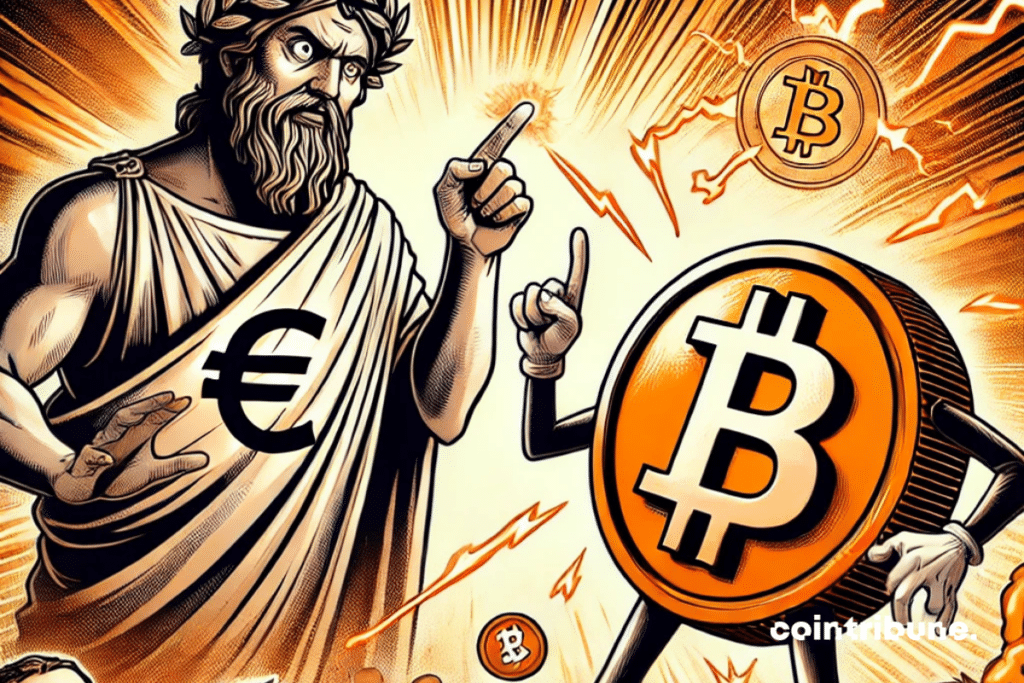Is Bitcoin Threatened? The ECB Mentions A Possible Ban
The European Central Bank (ECB) recently published a controversial report on Bitcoin, sparking strong reactions in the crypto community. The institution claims that early cryptocurrency holders would profit from newcomers, calling for strict regulation, even its ban.

A harsh critique of the Bitcoin model
The ECB study, published on October 12 on its official website, paints an unflattering portrait of Bitcoin and its ecosystem. According to the institution, those who acquired BTC at low prices would resell them profitably to new entrants, thus creating an inequitable dynamic.
The central bank even suggests radical measures to curb this phenomenon. It advocates notably for strict Bitcoin price control, or even its outright ban. The stated goal is to prevent a continuous rise in prices that would benefit early investors.
“In any case, current non-holders should understand that they have compelling reasons to oppose Bitcoin and to advocate for legislation against it, aiming to prevent Bitcoin price increases or see Bitcoin disappear completely.”
The ECB’s argument raises many questions. It notably overlooks the fact that all financial markets operate on the principle of buying at low prices and reselling at a profit.
Furthermore, the institution reiterates the unfounded accusation that Bitcoin is mainly used for illicit transactions, whereas recent reports from the US Treasury demonstrate the opposite.
A biased analysis that ignores the fundamentals
The ECB report overlooks several crucial elements to understand the growing attractiveness of Bitcoin. It notably omits to mention that the rise in its value since 2009 is largely explained by its programmed scarcity, in the face of rampant inflation of fiat currencies.
Indeed, the euro has lost about 85% of its value compared to gold since its introduction in 1999. This massive depreciation illustrates the limits of the current monetary system, which Bitcoin seeks to address precisely. Its creation by Satoshi Nakamoto aimed to offer a decentralized alternative and a store of value in the face of the erosion of purchasing power.
The ECB’s article seems to overlook the true underlying economic issues. By focusing on a supposed exploitation between investors, it avoids addressing the massive public debt problems and monetary inflation that are driving more and more savers towards cryptocurrencies.
Maximize your Cointribune experience with our "Read to Earn" program! For every article you read, earn points and access exclusive rewards. Sign up now and start earning benefits.
Passionné par le Bitcoin, j'aime explorer les méandres de la blockchain et des cryptos et je partage mes découvertes avec la communauté. Mon rêve est de vivre dans un monde où la vie privée et la liberté financière sont garanties pour tous, et je crois fermement que Bitcoin est l'outil qui peut rendre cela possible.
The views, thoughts, and opinions expressed in this article belong solely to the author, and should not be taken as investment advice. Do your own research before taking any investment decisions.